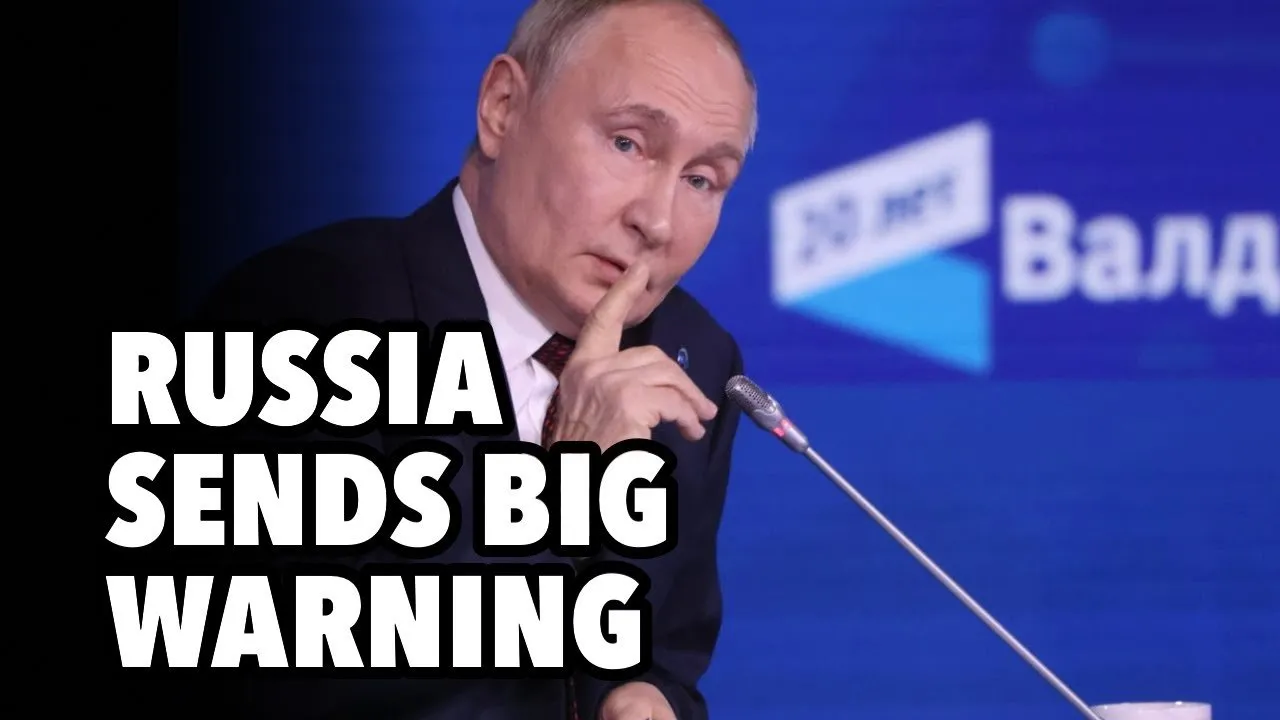Table of Contents
Former Morgan Stanley Asia Chairman Stephen Roach argues US trade policy fundamentally misunderstands economics and risks accidental war through bipartisan sinophobia targeting China.
Key Takeaways
- America's trade deficits stem from domestic savings shortfall, not specific countries' unfair practices, making targeted tariffs economically counterproductive
- Japan's 1980s experience shows trade restrictions can devastate target economies through currency manipulation and asset bubbles, causing decades of stagnation
- Current US-China tensions exceed 1980s Japan rivalry due to National Security framing, creating dangerous "accidental conflict" potential between nuclear powers
- Chinese economic model focuses on export-led manufacturing because officials excel at supply-side growth but struggle with domestic consumption stimulation
- Xi Jinping's leadership since 2013 abandoned market reforms for ideological control, surprising observers who expected continued liberalization like his reformist father
- Hong Kong's autonomy has effectively ended due to Chinese economic slowdown, US-China conflict crossfire, and National Security Law implementation
- Bipartisan Washington consensus on China hostility reflects "sinophobic" false narratives about security threats lacking credible evidence
- Trade deficit diversification from China to higher-cost producers like Mexico and Vietnam ultimately taxes American consumers without solving underlying imbalances
- Meaningful deficit reduction requires cutting federal budget deficits to boost domestic savings, not protectionist trade policies targeting individual countries
Timeline Overview
- 00:00–15:45 — Japan Trade War Historical Context: Discussion of 1980s US-Japan tensions, boom box smashing incidents, and how trade disputes resolved through Japanese production shifts to America
- 15:45–28:30 — Economic Fundamentals and Trade Deficits: Roach explains how America's savings shortfall drives multilateral trade deficits, making country-specific targeting economically futile
- 28:30–42:15 — Japan's Lost Decades and Policy Consequences: Analysis of Plaza Accord currency manipulation, asset bubble creation, and resulting three decades of Japanese economic stagnation
- 42:15–55:40 — China's Current Economic Challenges: Assessment of property crisis, demographic decline, productivity problems, and structural similarities to Japan's pre-crisis conditions
- 55:40–01:08:20 — National Security Concerns and 'Sinophobic' Narratives: Critique of unsubstantiated threat claims about Chinese EVs, telecommunications, and infrastructure as "vehicular weapons of mass destruction"
- 01:08:20–01:20:35 — Accidental Conflict Risks and Cold War Dynamics: Warning about mutual distrust escalation potentially leading to kinetic warfare through misunderstanding and false narratives
- 01:20:35–01:32:10 — Chinese Export Focus and Third Plenum Expectations: Explanation of China's manufacturing competency versus consumption stimulation difficulties, with skepticism about reform prospects
- 01:32:10–01:43:25 — Hong Kong's Decline and Personal Experience: Roach's controversial "Hong Kong is over" thesis based on economic linkage, geopolitical crossfire, and rule of law erosion
- 01:43:25–end — Xi Jinping's Leadership Transformation: Surprising abandonment of expected market reforms after 2013 third plenum, shift toward ideological control and leader-centric governance
The Japan Template: How Trade Wars Create Economic Devastation
Stephen Roach's analysis of 1980s US-Japan trade tensions provides a sobering template for understanding current China policy mistakes, revealing how economic nationalism inevitably backfires against both trading partners while failing to address underlying structural imbalances that drive persistent deficits.
- Japan's accommodation to US pressure through "voluntary export restraints" and domestic auto production shifts appeared successful but triggered catastrophic policy responses including Plaza Accord currency manipulation
- The forced yen appreciation "panicked" Japanese policymakers who "ordered the Bank of Japan to slash domestic interest rates" creating equity and property bubbles that burst into "three lost decades of near economic stagnation"
- Unlike China today, Japan maintained a "very close security relationship" with the US through military bases and alliance structures, yet still faced intense economic hostility during manufacturing competition
- American politicians "figured out that the main culprit in the manufacturing recession was this thing that they didn't understand but it was a trade deficit" leading to misguided country-specific targeting
- The tragic 1980s murder of a Chinese-American by "displaced laid off Auto Workers" who couldn't "mistake the difference between the two nationalities" demonstrates how trade nationalism fuels dangerous xenophobia
- Japan's ultimate "end around in moving production to the US" followed by economic neutering shows how accommodation strategies can devastate target countries while appearing to resolve American concerns
Trade Deficit Economics: Why Country Targeting Fails
Roach's fundamental economic insight exposes the mathematical impossibility of solving America's trade problems through tariffs on specific countries, as multilateral deficits inevitably reflect domestic savings shortfalls rather than foreign unfair practices that politicians blame for competitive disadvantages.
- America's trade deficit exists with "106 countries" in 2023, with China representing the largest single deficit but only "a little below 30%" of the total after tariff reductions from previous 50% peak
- "When Nations don't save and they want to grow they import Surplus savings from abroad" creating balance of payments deficits that manifest as multilateral trade imbalances requiring foreign financing
- Trump's tariffs successfully reduced China's share of US trade deficit, but "all that happened was the Chinese piece went somewhere else" to higher-cost producers like "Mexico Vietnam Canada Korea Taiwan India Ireland and even Germany"
- The trade shift to "higher cost producers" means tariff policies "ends up taxing American workers" through increased consumer prices without addressing underlying savings-investment imbalances
- Meaningful deficit reduction requires "reduce our budget deficits" to boost domestic savings, making the economy "less reliant on Surplus savings from abroad and on the trade deficits" needed for foreign capital access
- Both Trump and Biden "have done more damage to the long-term budget deficit and federal debt trajectory than all of our previous presidents combined" while pursuing ineffective trade nationalism
'Sinophobic' Security Theater and False Narratives
Roach's critique of National Security justifications for China hostility reveals how unsubstantiated threat assessments have created bipartisan consensus around dangerous policies that risk "accidental conflict" between nuclear-armed powers through mutual misunderstanding and distrust escalation.
- Commerce Secretary Gina Raimondo's warning about Chinese EVs becoming "vehicular weapons of mass destruction" exemplifies threat inflation without "credible evidence" of actual capabilities or intent
- FBI Director Christopher Wray's claims about Chinese "strangle hold on America's utility infrastructure" and ability to disable systems "with just a flip of a switch from Beijing" represent presumptions of malicious intent lacking validation
- Similar unsubstantiated fears target "Huawei on 5G telecommunications even TikTok" and "dock loading cranes that are made in China" as potential weapons systems controlled remotely by Beijing
- Politicians remain "eager and aggressive to warn of consequences based on the presumption of intent that they have not been able and are unwilling to validate" creating policy based on speculation rather than evidence
- The "bipartisan era of what I've called sinophobia" has created unprecedented vilification where "I've never seen in my adult lifetime an adversary that's been so vilified as we are now vilifying the Chinese"
- This mutual distrust dynamic means "both nations are prone to politically expedient false narratives" poisoning relationships that previously functioned on "Mutual trust" before deteriorating into "Mutual distrust"
China's Structural Economic Challenges and Export Dependence
Despite America's hostile trade policies, China continues doubling down on export-led manufacturing growth because party officials excel at supply-side industrial policy while struggling to stimulate domestic consumption, creating vulnerabilities that mirror Japan's pre-crisis economic model.
- China faces "declining population especially the working age piece of the population and weak productivity" problems similar to Japan's demographic challenges requiring strong productivity growth to offset workforce decline
- "China's productivity problems are actually worse right now than they were in the 90s in Japan" suggesting structural headwinds may prevent effective demographic transition management
- Chinese officials remain committed to export manufacturing because "they're good at it" through "Central planning Legacy to support strategically and with Financial Resources manufacturing lead growth on the supply side"
- However, Chinese planners are "bad at being able to stimulate internal private consumption" with expertise limited to "demand for new investment and infrastructure and building the manufacturing capacity"
- Roach's decades of lectures advocating "consumer led rebalancing" inside China to "universities," government, and "senior leaders" have consistently failed to change policy direction toward domestic demand
- The upcoming third plenum will likely disappoint reform expectations because "these third plums" focus "more about ideology and governance than they are about really coming up with creative new policies"
Hong Kong's End and Roach's Personal Experience
Roach's controversial declaration that "Hong Kong is over" stems from direct experience observing the territory's transformation from autonomous financial center to controlled Chinese city-state, demonstrating broader patterns of authoritarian consolidation under Xi Jinping's leadership.
- Hong Kong's economy remains "tied very tightly to the ups and downs of the Chinese economy" with identical slowdown rates "to the tenth of a percentage point" over the past dozen years
- The territory faces crossfire damage from "US China conflict" as America pressures partners toward "friend Shoring" that "diverts trade away from China and Hong Kong" despite the city-state's trade dependence
- Beijing's 2020 National Security Law imposition followed by Hong Kong's own Article 23 legislation in March 2024 has created a "very chilling" political environment incompatible with autonomous governance
- The resignation of UK Supreme Court Justice Jonathan Sumption from Hong Kong's Court of Final Appeal warned of "grave dangers to the rule of law" and emergence of "judicial patriotism" undermining legal independence
- Roach's critical analysis led Chinese officials to refuse his participation in the "China development Forum" while Hong Kong politicians "unleashed almost everything they can in terms of ad hominem attacks"
- Despite security concerns requiring "guarantees of safe travel in both directions," Roach continues engaging through "constructive criticism and free and open debate" following John Lewis's example of making "good trouble"
Xi Jinping's Surprising Transformation from Expected Reformer
The most shocking aspect of China's recent trajectory involves Xi Jinping's abandonment of anticipated market reforms after 2013, defying expectations based on his reformist father's legacy while consolidating unprecedented personal control over party and state institutions.
- Initial optimism around Xi Jinping stemmed from assumptions he would follow "the same cloth of his father who was a leading reformer in the 80s and 90s in Guangdong Province" promoting market-oriented policies
- The November 2013 third plenum produced a "decision document that listed over 300 individual reforms" convincing observers that "China was on a spectacular path of renewed reform and opening up market-based economic activity"
- However, "never happened" as Xi focused instead on "anti-corruption Campaign which then took on a far greater focus on control and a shift to a more backward looking ideology"
- The emergence of "Xi Jinping thought as a general concept" and constant references to Xi as "core leader" eliminated the "consensus Leadership Model which had been carefully assembled by Deng Xiaoping"
- Xi's elimination of regular succession planning through indefinite tenure represents fundamental departure from institutional governance toward "leader Centric model of Chinese governance which has deep roots in the history of China"
- This "180 that's happened for China under the fifth generation leader" represents Roach's greatest surprise and disappointment after decades of studying Chinese economic policy development
The trajectory toward "accidental conflict" between the world's two largest economies threatens global stability through escalating trade wars that ignore basic economic principles. Roach's warning that current policies risk recreating Japan's lost decades while potentially triggering military confrontation demands serious consideration of alternative approaches to managing great power competition.
Practical Predictions About the Future World
- US-China Trade Escalation (2024-2028): Bipartisan consensus will drive further tariff increases and technology restrictions regardless of presidential election outcomes, worsening economic relationship beyond current levels
- Chinese Economic Stagnation (2024-2030): Property crisis and demographic decline will trigger Japan-style prolonged slowdown, with export dependence preventing effective domestic rebalancing despite third plenum rhetoric
- Accidental Conflict Window (2025-2027): Mutual distrust and false narratives increase kinetic warfare risks through Taiwan or South China Sea incidents, with highest danger during US election period volatility
- Alternative Trade Partners Shift: US import diversification will continue toward Mexico, Vietnam, and India as higher-cost Chinese substitutes, raising American consumer prices while failing to reduce overall deficits
- Hong Kong Financial Decline (2024-2026): Territory will lose international financial center status as rule of law erosion and National Security constraints drive Western banks and businesses to Singapore alternatives
- Federal Budget Crisis (2025-2030): Continued deficit expansion under either Trump or Biden successors will worsen savings shortfall, making trade deficit reduction impossible without fiscal consolidation
- Chinese Technology Isolation: Semiconductor and advanced technology restrictions will accelerate Chinese domestic development while creating parallel global technology ecosystems reducing interdependence
- Japan Recovery Comparison: Unlike Japan's accommodation, Chinese resistance to US pressure will prevent currency manipulation but may trigger more severe economic warfare
- Third Plenum Disappointment: Upcoming CCP meeting will emphasize ideological control over market reforms, disappointing international observers expecting consumption rebalancing initiatives
- Cold War Institutionalization (2025-2035): US-China relationship will formalize into permanent adversarial structure with military buildups, alliance formations, and economic blocs replacing integration
- Export Economy Persistence: Chinese leadership will maintain manufacturing focus despite international pressure, viewing export competitiveness as essential for political legitimacy and employment stability
- Regional Alignment Pressure: Asian economies will face increasing pressure to choose between US and Chinese economic spheres, ending neutral positioning that characterized post-Cold War globalization
The economic nationalism driving current policy ignores fundamental savings-investment relationships while creating dangerous geopolitical tensions that threaten global stability through misunderstanding and false threat assessment.





